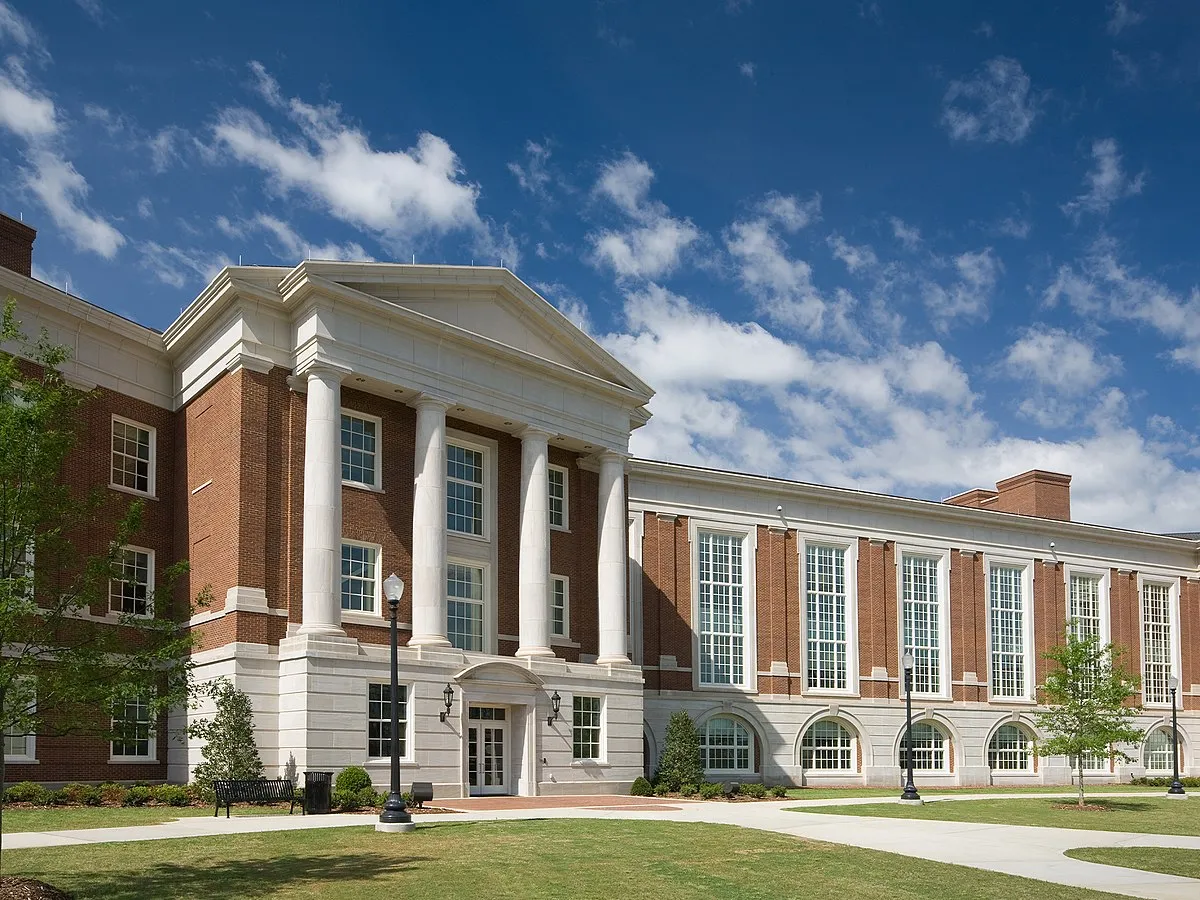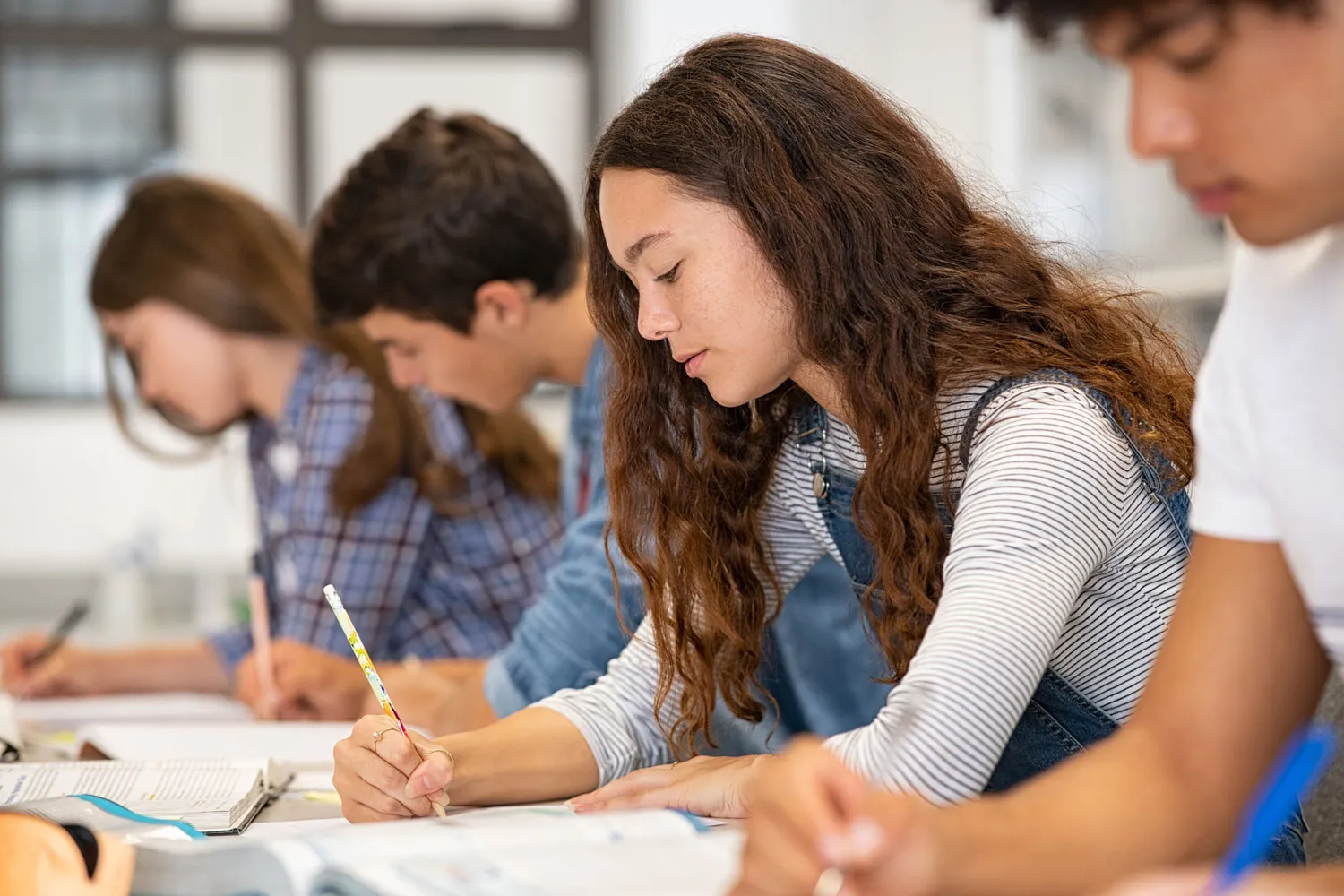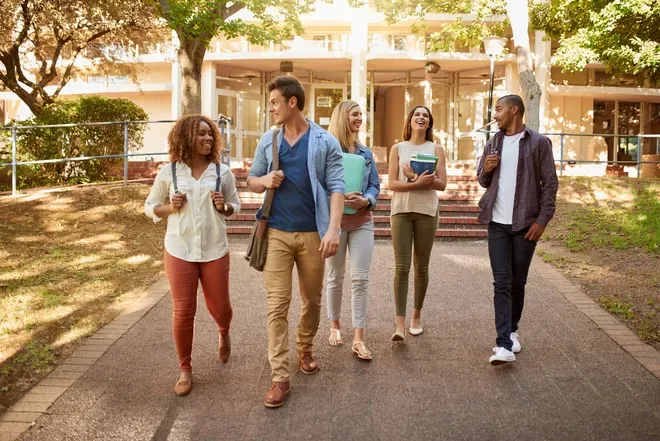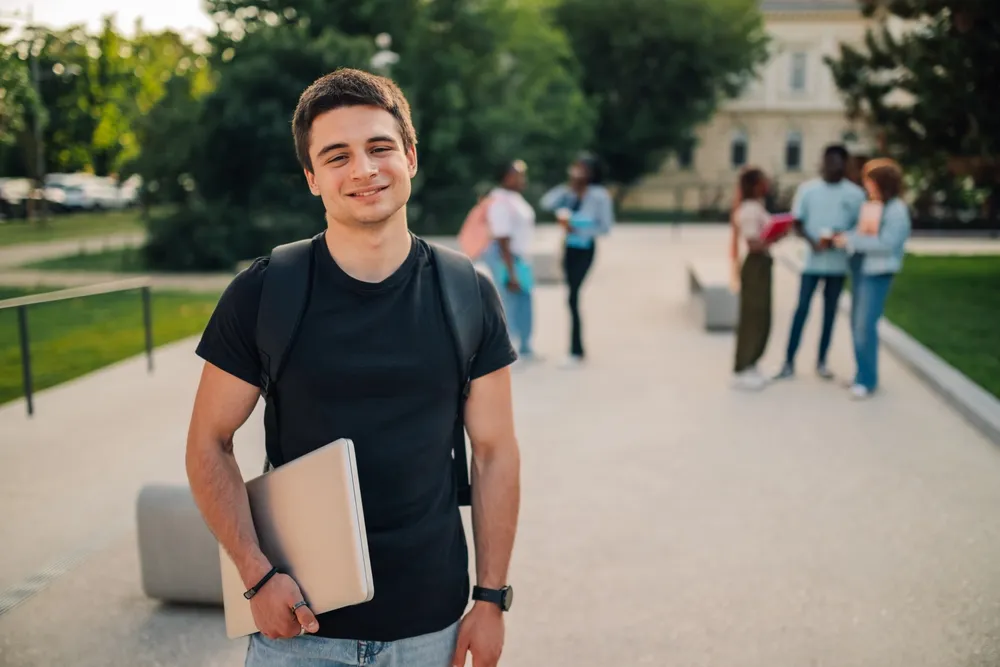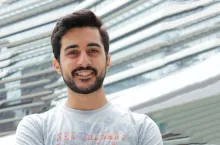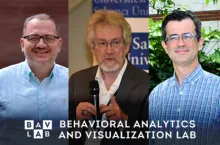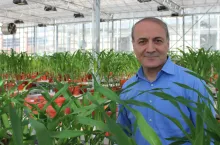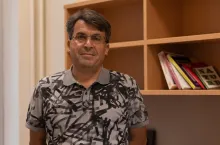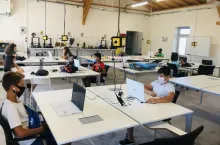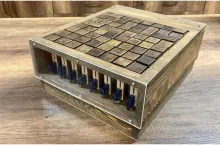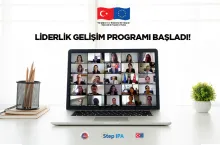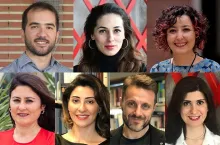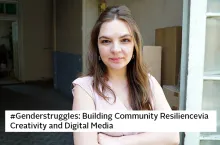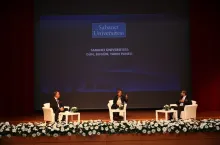12/11/2020
Batın Mert Karahasanoğlu, a student at the Electronics Engineering Program, the Faculty of Engineering and Natural Sciences, Sabancı University has been awarded IEEE MTT-S Undergraduate/Pre-graduate Scholarship by the IEEE Microwave Theory and Techniques Society with his “Phase Shifter” project, which is one of the lower blocks of the 5G circuit that he designed. Karahasanoğlu, who has a double major in Mechatronics Engineering Program, has also been awarded a Fulbright Master's Scholarship.
Below is our interview with Batın Mert Karahasanoğlu.
Hello, first of all, congratulations. Before we talk about the scholarships that you have received, can you tell us a little about how you decided to study Electronics Engineering at Sabancı University?
B.M.K: I wanted to start my university life in Istanbul and I had 3 universities in mind. When I came for the introduction days of Sabancı, I listened to the speech of our then Rector, Nihat Berker, and then I had the opportunity to chat with him. I can say that the reason I prioritized Sabancı among my choices was what I heard from Mr. Berker.
To tell you about the process of choosing my department, I have always had an interest in mathematics and physics. I was also curious about the working principles of smart tools, devices that can communicate with each other. I chose the Electronics Engineering Program because I thought it would satisfy my interest and curiosity.
Currently, you are continuing your double major and minor education at our university. How was your decision-making process regarding that?
B.M.K: Electronics Engineering to me is the factory floor, I am learning the working principles of every device around us that we describe as smart, how they work and what they do. On the one hand, it was also interesting that these electronic commands turned into a physical movement. With my curiosity at this point and the lessons I received as a result, I decided that the Mechatronics double major would be suitable for me. Being a double major with two engineering majors was theoretically very satisfying, but I also wanted to have an idea about social sciences. I would say that the fact that it includes courses on international relations, economics, and is based on the topic of energy were the main reasons I chose the energy minor.
What kind of things did you do during your undergraduate studies at Sabancı University? Can you tell us a little bit about your campus life, about the club work you were actively involved in?
B.M.K: When I look at my undergraduate education at Sabancı University, I think I was able to achieve a balance both academically and socially. Because I was from out of town, I stayed in the dormitory all my college life. In this way, I took advantage of the low intensity of courses in the early years of my education and had different experiences in different clubs. Although I had no previous experience, I participated in sailing courses of SUSail because I was interested in sailing. After that, I learned Latin dances in SUDance and joined a performing group. At the same time, I picked up tennis and still continue to play. In later years of my education, I turned to more technical clubs. As of the beginning of last year, I was on the Board of Directors of the Motorsport Technologies club and the IEEE Student Branch. This is how I can summarize my undergraduate activities in Sabancı.
You have received the MTT-S Undergraduate/Pre-Graduate Scholarship of IEEE and a Fulbright Master’s Scholarship in America. Once again, congratulations. Can you tell us about these scholarships?
B.M.K: Thank you. The scholarship I have received from IEEE is an international scholarship that students who work at a high frequency at the undergraduate level can apply for with their projects. My final project was on 5G circuit design under the supervision of Prof. Yaşar Gürbüz. I designed the “Phase Shifter”, one of the lower blocks of the 5G circuit, was made entirely by myself. I applied with a report containing a logical explanation of the topology I chose, the design stages, the simulation performance of the design, and a literature comparison. I am also happy to have been awarded a prestigious award given in my field with the work I have done in return for a high work pace of about 9 months. At this point, I would like to thank Mr. Gürbüz and the SUMER team for their support in the project process.
The other scholarship I am eligible for is the Fulbright Master’s scholarship. This scholarship covers education and living expenses during your Master's studies in the United States. At the first stage, you create an application package containing the documents they ask for and submit it to the commission. If deemed appropriate, you will proceed to the interview stage. At this stage, you are interviewed by 2 professors from the field you want to have your Master’s in and 1 representative from the Fulbright commission. If you are deemed appropriate at the end of this process, you are eligible for the scholarship.
What are your plans for the next semester regarding the scholarships that you have been awarded?
B.M.K: I want to assess the scholarships I have received and have my master's degree at a good university in the United States. I am trying to decide on the universities I am going to apply to these days. Although I had some universities and study groups in my head, I could not make my decision yet. After completing my master's studies in electronics engineering, I am planning to start my business life at a global company. We are going through a process where there is a lot of uncertainty, so time will be a determining factor as well.
Do you have any advice for our undergraduate students who are just starting Sabancı University?
B.M.K: First of all, I would like to welcome them all.
I advise them to be curious and aware. Proper planning and time management have been the biggest gains of my university life. In this way, you realize that you do not have to choose between academic success and a fulfilling social life. I do a double major and minor, I did a an exchange program in Hong Kong, had an internship in Germany, I have been awarded two international scholarships, I am an active board member of two clubs, and I am currently working part-time at a global firm. I am not the first person to do this, and I will not be the last. The bigger your goals are, the bigger the steps you need to take towards that goal. All my best to you.
“Sky is not the limit your mind is”
Is there anything you want to add?
B.M.K: Undergraduate life remains beautiful with memories, I thank all my friends involved in these memories, but especially Ufuk Avcı and Serra Güllü.

